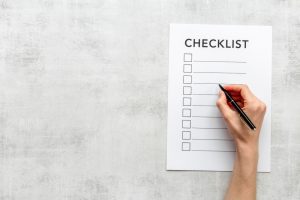The Power of Benchmarking at Events & Exhibitions

The power of competitive benchmarking at events and exhibitions ultimately boils down to the challenge of measuring success. There’s a lot going on already, you are concentrating on your exhibit, networking, being attentive and friendly with people. It can often be difficult to balance all that with monitoring your own success and coming up with improvements to your strategy.
Competitive benchmarking is any form of strategic comparison with a competitor that helps you understand how you stack up against them. You would do this in order to gauge and improve your performance at future events and exhibitions.
Competitor benchmarking helps you to:
- Analyse insights
- Improve performance
- Build campaigns
- Patch issues
- Influence strategies
- Optimise budget
This can transform your event strategies by letting you know where you stand out and where some changes may be needed in order to create a more compelling offering moving forward.
It’s perfectly ethical, beneficial and wise to look at what your neighbour is doing well – especially if their lawn is greener than yours! You can learn from your competitors, and they will be learning from you too.
Understanding benchmarking in the events industry
Benchmarking is any type of direct comparison in order to gauge your performance. Benchmarking competitors means performing this comparison against your key competition. You do this in order to identify the strengths and weaknesses of your offering, not necessarily to scrutinise theirs.
The different types of competitor benchmarking used at an event may include:
Product Benchmarking: Compare the range of topics covered, the products and services on offer, the quality of speakers, the diversity of the exhibition, and the uniqueness of the whole experience.
Process Benchmarking: What are the other registration processes like? Compare ticketing systems, event management software, check-in protocols, security, and attendee flow management. You can even compare their benchmarking software against your own.
Performance Benchmarking: Analysing how attendance numbers and engagement levels compare to other events in the industry can also help you strategize more effectively.
Strategic Benchmarking: Gain an understanding of how competitors position their events in the market, their pricing strategies, partnership models, and expansion plans.
Marketing Benchmarking: This is a common strategy across the board, it goes without saying. Leading upto and during an event you can compare social media strategies, email marketing campaigns, and content marketing effectiveness.
Customer Experience Benchmarking: How do others engage with your competitors? Are there any networking opportunities? Check out if there are any satisfaction surveys or feedback mechanisms employed by competitors.
Technology Benchmarking: Assess how competitors use event technology to deliver their message, products and services. Could you make use of the same technology, or even improve on the use of it?
Sustainability Benchmarking: Comparing sustainability initiatives can lead to the discovery of a surprising competitive edge over the rest of your industry. Compare waste management systems and carbon footprint reduction schemes to see where possible improvements can be made in your own operation.
Compliance Benchmarking: Compare how well competitors comply with health and safety regulations, data privacy laws, and other relevant legal frameworks. This may expose some weaknesses or room for improvement in your own compliance.
The importance of competitor benchmarking in exhibitions
All competitive benchmarking techniques provide unique data insights into experiential marketing that can help you improve your exhibition, attendee experience, and maintain a competitive edge in the market.
You will be able to:
- better understand attendee experiences
- refine your marketing strategies
- boost operational efficiency
- stay competitive
- learn from the successes and challenges of others
Competition benchmarking in exhibitions is crucial for understanding industry standards, identifying gaps, and improving your performance at any given event.
How can benchmarking impact your events?
1. Identify strengths and weaknesses
Benchmarking competitors allows you to compare your offering against others, helping you pinpoint areas where you excel and those that need improvement. For example, if your booth in an event has high engagement but low conversion rates compared to others, you can focus on enhancing your sales, marketing, and closing techniques.
2. Set realistic performance goals
If you can better understand the performance metrics of similar competitors within similar events, or those that run their own, you can set realistic and more achievable milestones. This helps to set your expectations on factors such as visitor numbers, engagement and ROI.
3. Improve resource allocation
Competitor benchmarking provides insights into how competitors allocate their resources, helping you to optimise your budget and resources more effectively. With this information, you may be able to make more informed decisions on:
- the correct marketing materials to use
- how many people you will need to facilitate your participation in an event
- how many visitors you may need to cater for
4. Stay ahead of industry trends
Trends are created by the actions of the industry influencers around you, so it makes sense to benchmark against them. Identify emerging trends, adapt quickly and get ahead of the game by analysing your competitors’ strategies. For example, are your competitors using artificial intelligence in event technology? Could you make use of it too?
5. Enhance your overall event strategy
If other booths within an exhibition are using interactive features or key speakers to boost attendee satisfaction, you might integrate similar elements into your event strategy to enhance the overall experience.
6. Boost sponsorship appeal
Hosting an event? Compare your value proposition to those of your competitors and identify what makes your event more or less attractive to sponsors. If you are attending an event, do the same to see what makes you more viable to sponsor an event over your competitors. Both options can be beneficial to your brand awareness and ROI.
7. Enhance attendee satisfaction
Competitive benchmarking can highlight areas where you may fall short in terms of visitor satisfaction. The use of competition benchmarking software will help you improve your booth or stand for events and exhibitions in the future.
Get ahead of the pack with Exposure Analytics’ Booth Scoring
What is Booth Scoring? This is where we use the data collected from various aspects of your booth or stand at an exhibition, and delegate it a score out of 5. We provide the average booth score across all events in three-month cycles, and an annual average score which is also based on the industry sector.
Sensors are employed at the events to collect this data. They can collect data from multiple booths at any given event, providing access to an unprecedented wealth of event tracking data. This helps you to better understand how you perform and allows you to improve your method, strategy and approach to event marketing.
Types of data collected and analysed
The data that contributes to the Booth Score is sourced from our modern event tracking sensors.
Apex Monitor – Provides real time footfall data as well as monitor your exit and entry points. This gives you the full picture of traffic around your booth and in your surrounding event space.
People Coordinates – This provides real time, pinpoint accuracy of visitor movement. This will enable you to have a deeper understanding of how people interact with your booth and within the surrounding event space.
EX Sensors – Use the Wi-Fi signals from attendees’ devices to capture footfall, dwell times, engagement rates, and heat maps. EX Sensors paint a comprehensive picture of your event, and comes with its own 4G sim card.
Discover more about the power of competition benchmarking with Exposure Analytics
Our selection of market-leading benchmarking software and analytical tools can help you with benchmarking competitors and staying ahead of the game at all times. Make sure you stand out and remain and industry thought leader at every event and exhibition you attend.
For more information simply contact us and we will be more than happy to discuss your needs in detail.


